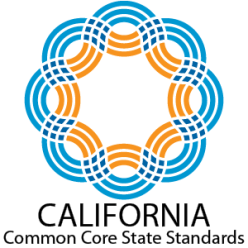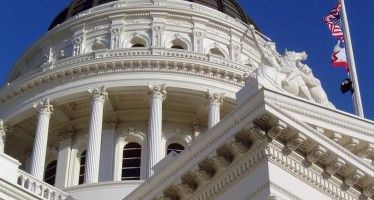In CA, Smarter Balanced testing shapes fate of Common Core

 It’s crunch time for California supporters of the new Common Core educational standards.
It’s crunch time for California supporters of the new Common Core educational standards.
On several fronts, key business, education and political interests have heightened their push for the changes. Although opposition remains strong, pro-Common Core groups sense that a tipping point may be approaching. Rather than taking victory for granted, they are mobilizing, using overlapping strategies centered on the so-called “Smarter Balanced” assessments.
The computer-based tests, used to appraise students’ mastery of Common Core, are already receiving mixed reviews at best. As the Orange County Register reports, students have experienced the kinds of tech glitches that are familiar to Americans from the checkout aisle to Obamacare signups — frozen screens, no sound, slow clicks and password resets. Administrators have additional challenges on their mind. Amy Kernan, a vice principal interviewed by the Register, expressed concern that the “hallmark” adaptive testing portion of Smarter Balanced has yet to be pilot tested itself.
Federal pressure to meet deadline
Thanks to U.S. Department of Education demands, California has just one year to test out the exams. (Scores won’t be issued this year.) Remarkably, California is one of several states singled out by the DOE for punishment if it fails to meet the Smarter Balanced deadline. Despite widespread enthusiasm among California lawmakers for Common Core, legislators in 2013 passed a bill designed to suspend nearly all statewide student testing for one year — the better to prepare for Smarter Balanced implementation.
Signed into law in September by Gov. Jerry Brown, Assembly Bill 484 provoked the swift ire of DOE officials. As activists objected that the bill would create a “black hole of information,” Education Secretary Arne Duncan warned that California would lose up to $15 million or more in federal education funding for the move. Deborah Delisle, assistant secretary in the Office of Elementary and Secondary Education, sent a sternly worded letter to Tom Torlakson, state superintendent of public instruction, and Mike Kirst, president of the state Board of Education. “By failing to administer a reading/language arts and mathematics assessment to all students in the tested grades,” she wrote, “California would be unable to provide this important information to students, principals, teachers and parents.”
A scramble for funding
Last spring, Brown also authorized one and a quarter billion dollars of state-funded Common Core funds, to be distributed proportionally to each school district in California. In an effort to hang onto federal dollars, Sacramento officials resolved to proceed with Smarter Balanced testing only, speeding up the timetable for distributing the $1.25 billion.
What they didn’t anticipate was confusion over how that money would be spent. California school districts vary widely in their level of education technology and technical support. According to the Hechinger Report, some districts have already spent all of their share of the grant, while others have spent only a third — leading Brown to pledge this May an additional one-time sum of $26.7 million to grease the wheels for Smarter Balanced.
Public relations push
With so much uncertainty surrounding the cost of merely being able to administer the Smarter Balanced exams, Common Core supporters have issued a fresh statement touting the embattled agenda. Some 300 groups and individuals have signed a joint statement, sent to Gov. Brown and others, justifying the Smarter Balanced ordeal as a necessary step in the march toward fulfilling Common Core advocates’ promises.
At least one activist expressed clear concern that Smarter Balanced posed a significant threat to favorable public and educator opinion surrounding Common Core. Debra Brown, associate director of education policy for Children Now, expressed “trepidation” over the likelihood of unfavorable “knee-jerk reactions” toward the testing process.
The public relations effort follows on the heels of a February letter sent to state education officials by Common Core opponents. Californians United Against Common Core pegged the estimated cost of assessing Common Core at over $1 billion.
Related Articles
Deadbeat California Needs a Payday Loan
JULY 15, 2011 By CHRISS STREET For the State of California and its counties and cities, tax collections tend to
Census question could increase swing seats in House, Legislature
The recent U.S. Supreme Court hearing where the justices’ conservative majority appeared prepared to accept the Trump administration’s decision to add a
CA health tax plan keeps Medi-Cal part of national budget
Surmounting a challenge that has festered since summer of last year, Sacramento legislators pulled together behind a tax plan that will




